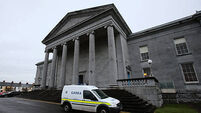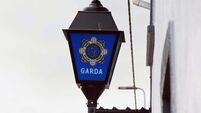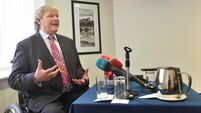Bill on adoption records access unfit for purpose, says ICCL

The Government’s planned legislation to allow people separated from their families through adoption to have access to their own records and histories has been slammed as “unfit for purpose” by a civil liberties group.
The bill plans to gather all adoption and “informal care arrangement” records into Tusla and the Adoption Authority of Ireland (AAI).
Under Section 40 of the legislation, social workers will provide “statements” for those seeking their records, describing the contents of their file but not giving any information that would identify a natural parent or a natural relative of the applicant.
Under Section 41, adopted people will be entitled to their birth certificate only if they sign a formal undertaking that they “will not contact, or attempt to contact, the birth mother, birth father or relevant guardian concerned”.
The bill contains no provision for a natural mother to access her own file.
However, it does provide for adopted people to be contacted if their mother requests information about their adoptive identity.
Executive director of the Irish Council for Civil Liberties (ICCL), Liam Herrick, said the legislation, as it stands, is “unfit for purpose” and called on all members of the Oireachtas to commit to changing the provisions of the bill so that the people affected can access their own “original, unredacted records, rather than non-identifying summaries created by social workers”.
He said that all records, including those of the ongoing Mother and Baby Homes Commission, should be deposited with an independent body and swiftly made available to the people whose information they contain.
“Without taking this step, the State is continuing to deny the basic rights of tens of thousands of people to their identity, and to respect for their private and family lives.”
He cited an Irish Examiner special investigation earlier this week as an example of the ICCL’s concerns about allowing social workers alone to interpret the contents of someone’s adoption and child placement records.
“It demonstrates that some senior social work staff in Tusla are intent on limiting access to personal information and describing the contents of files in a way that will minimise legal complaints about the circumstances of past family separations,” he said.
The ICCL pointed out that the planned information and tracing legislation “is completely out of step” with Northern Ireland and the rest of the UK, and with other European countries such as Spain, Austria, Germany, and the Netherlands.
All of these countries provide adopted people with their birth certificates and adoption files upon reaching their late teens, and none imposes a requirement never to attempt to contact natural family members.
Earlier this week, James Gallen, appointed by Children’s Minister Katherine Zappone to advise on a transitional justice model to the issue of Mother and Baby Homes, accused the State of being more concerned with managing the “potential scandal and legal liability” of illegal adoption, birth registration, and other coercive adoption practices than helping victims.












